Traditional and contemporary kilts sewn to order
Paul Henry Kilts
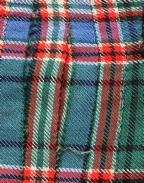
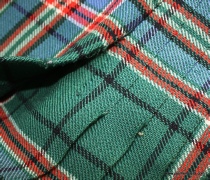
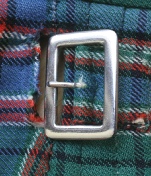
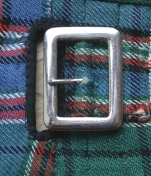
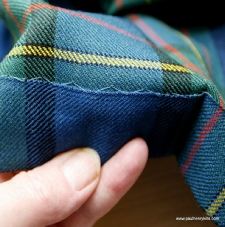
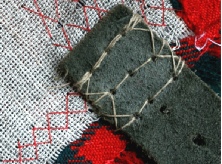
It’s not unusual for kilts to need to be altered, perhaps they have grown a little smaller over the years, and no longer quite fit, or perhaps you have been lucky enough to be handed down a family one, and it’s just not fitting properly. Some alterations are fairly simple, for instance moving the buckle and straps which can easily allow an extra inch or two without drastically changing the look of a kilt. HeMarton Millsing a kilt is also an option, anywhere between 1”-3”can be taken up. For a boys kilt making a kilt with a hem ensures that the kilt will have a much longer useful life.
A hem is hand sewn using small but long stitches which only just catch the back of the front fabric so that the stitching remains almost invisible. It is important that these stitches have a little bit of “play” in them to allow some movement otherwise the hem will bunch up and become very obvious. A consideration also must be made for the placing of the hem so that from the front, the sett of the kilt still looks reasonable, so there is always has to be a little bit of compromise.When carefully done the stitching is virtually invisible from the front of the fabric
Repairing a kilt is hard and slow work, and unless the kilt is a valuable one, it might not be worth the extra time and money.
The kilt pictured below is over 50 years old and has been worn by the same person
very often, It has been repaired many times, and does show great wear and tear, but
it has a strong sentimental attachment to the owner, so while it will never be a
“best” kilt, repairs have been done to ensure that it is still wearable for everyday.
The fell and pleat edge stitching were coming apart, either from being stretched,
or the thread fraying and decaying, so by using small stitches and sometimes with
the use of a support fabric on the inside the seams can be reconsolidated. On the
buckle hole the edge of the fabric had simply worn away, so the only solution was
to bind the edge in a plain coloured binding, which isn’t even seen when the leather
strap is in pace. The kilt also needed to be completed re lined as well with new
cotton,as the last one had torn exposing the inside workings , and had discoloured
and aged badly. I don’t normally see kilts as bad as this, but even so the kilt
ended up with a new lease of life.
The stitching at the bottom of the fell was loose and coming apart
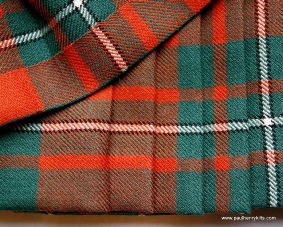
The pleats on the near side as found, and on the far side after re stitching
before showing the frayed edges - after with the bound hole
| past events |
| traditional |
| contemporary |
| Making a kilt |
| fabric |
| style |
| measuring |
| prices and ordering |
| Special offers |
| extras and gifts |
| alterations |
| Harris Tweed |
| Everyday tweeds |
| supplied fabric |
| sock cuffs |
| knitted garters |
| tartan notebooks |
| lavender bags |
| kilt aprons |